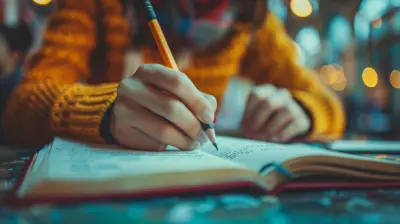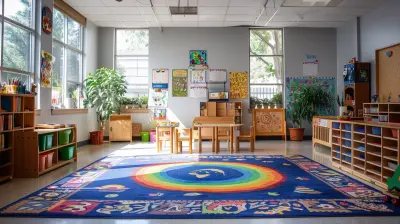1 June 2025
Education isn’t just about memorizing facts or passing exams—it’s about truly understanding and applying knowledge in real-world situations. But how can students ensure they’re actually learning, growing, and improving? The answer lies in reflection.
Reflection is the key to deeper comprehension, critical thinking, and personal growth. It helps students process their experiences, identify strengths and weaknesses, and ultimately become better learners. Yet, despite its importance, reflection is often overlooked in traditional education.
In this article, we’ll dive into why reflection matters, how it benefits students, and practical ways to integrate it into daily learning.

What is Reflection in Learning?
Reflection isn’t just looking back at what you did—it’s about analyzing experiences, recognizing patterns, and using those insights for future improvement. It’s the difference between simply completing an assignment and truly understanding its impact.Think of learning as a road trip. You don’t just drive aimlessly; you stop, check the map, adjust your route, and figure out what’s working and what’s not. That’s exactly what reflection does for students—it helps them pause, assess, and refine their learning journey.

Why Reflection is Crucial for Students
Many students fall into the trap of passive learning—they listen to lectures, take notes, and move on without truly digesting the material. Reflection transforms passive learning into active engagement, leading to better retention and application of knowledge.Here’s why reflection is a game-changer:
1. Enhances Self-Awareness
Reflection allows students to assess how they learn best. Do they understand concepts better through visual aids, hands-on experiences, or discussions? By recognizing their learning style, they can tailor their study habits for maximum efficiency.2. Strengthens Critical Thinking Skills
When students reflect, they analyze what worked and what didn’t. This encourages problem-solving and deeper thinking—skills that are essential not just in school, but in life.3. Encourages Responsibility for Learning
No one learns effectively by simply being spoon-fed information. Reflection promotes accountability, pushing students to take ownership of their education rather than passively relying on teachers.4. Boosts Confidence and Motivation
When students reflect on their progress, they see how far they’ve come, which builds confidence. It also keeps them motivated—knowing they’re making improvements reinforces the effort they put into learning.5. Reduces Stress and Anxiety
Reflection helps students process challenges and setbacks in a constructive way. Instead of feeling frustrated, they learn to view mistakes as opportunities for growth, reducing academic stress.
How to Encourage Reflection in Students
The good news? Reflection isn’t complicated. With the right strategies, students can make it a natural part of their learning process. Here are some simple, effective ways to incorporate reflection into education:1. Encourage Journaling
Writing is one of the best tools for reflection. Have students keep a learning journal where they jot down their thoughts, breakthroughs, and struggles. Even a few sentences after a lesson can make a huge difference.2. Ask Thought-Provoking Questions
Instead of just asking, “Did you understand?” encourage deeper thinking with questions like:- What was the most important idea you learned today?
- How can you apply this knowledge in real life?
- What part of today’s lesson was challenging, and why?
These questions push students to think critically about their learning rather than just recalling information.
3. Use Peer Discussions
Sometimes, talking things out is the best way to process information. Pair students up or create small groups where they discuss what they learned, what challenged them, and how they overcame obstacles.4. Encourage Self-Assessment
Have students rate their understanding of a topic before and after a lesson. This simple exercise helps them track their progress and recognize areas that need improvement.5. Incorporate Reflective Assignments
Instead of just assigning tasks, ask students to reflect on their work. For example, after completing an essay, they could write a short reflection on what they struggled with, how they improved, and what they would do differently next time.6. Emphasize Mistakes as Learning Opportunities
Students often fear failure, but reflection helps shift that perspective. Show them that mistakes aren’t setbacks—they’re valuable lessons. Encourage them to reflect on what went wrong, why it happened, and how they can improve next time.7. Set Personal Learning Goals
Guiding students to set clear, realistic learning goals helps them stay focused. Reflection allows them to check in on these goals, make adjustments, and track their progress.
The Role of Teachers in Promoting Reflection
Teachers play a huge role in fostering a culture of reflection. It’s not enough to tell students to reflect—they need guidance and encouragement. Here’s how educators can help:- Create a Safe Space for Honest Reflections – Students should feel comfortable expressing their thoughts without fear of judgment.
- Model Reflective Thinking – Share your own reflections and experiences as a learner to set an example.
- Provide Feedback That Encourages Reflection – Instead of just grading work, provide comments that challenge students to think deeper about their approach.
- Make Reflection a Routine – Embed reflection into daily activities so that it becomes second nature to students.
Final Thoughts
Reflection is the secret ingredient to meaningful learning. It helps students build self-awareness, sharpen critical thinking, and take charge of their education. By making reflection an everyday habit, we empower students to not just learn—but to understand, adapt, and grow.So whether you’re a student, a teacher, or a parent, start incorporating reflection into your learning journey today. It’s a small habit that leads to big success.









Natalia McGuffey
Reflection is essential for deep learning. Encouraging students to actively think about their experiences empowers them to take ownership and enhances their understanding and growth.
December 22, 2025 at 12:05 PM